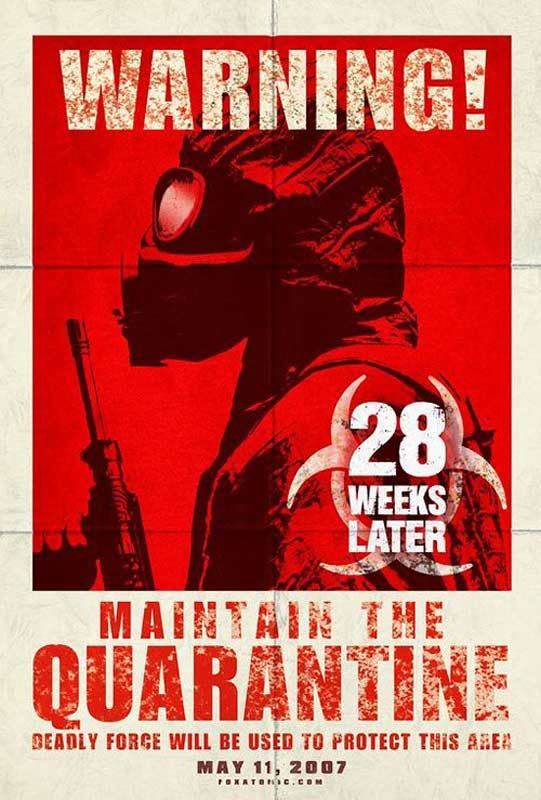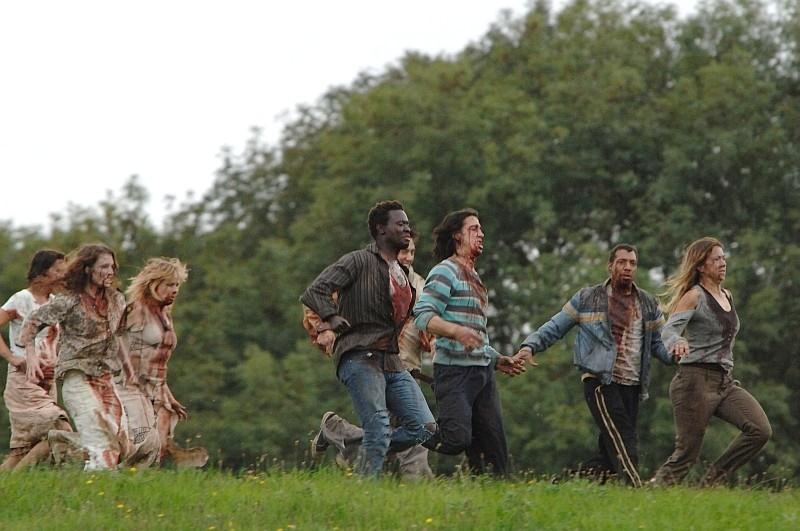

Heplisav-B (Dynavax) is a two-dose vaccine approved for use in adults aged 18 and older. In November 2017, a vaccine was approved by the FDA for use in the U.S. Two-Dose Hepatitis B Vaccine Schedule for Adults To be certain that you are protected against hepatitis B, ask for a simple blood test to check your “antibody titers” that will confirm whether the vaccination was successful. Or, if you get the first two doses of vaccine and miss the third dose, then just schedule the last shot when you can.
#28 WEEKS LATER INFECTED SERIES#
For example, if you start the vaccine series and stop, then get the 2 nd shot when you can and make sure to get the 3 rd shot at least two months later. You do not need to restart the hepatitis B vaccine series if you miss any of the shots. Infants should be a minimum of 24 weeks old at the time of the 3rd shot. 3rd Shot - At least 4 months (16 weeks) after the 1st shot and 2 months after the 2 nd shot.2nd Shot - At least one month (or 28 days) after the 1st shot.1st Shot - At any given time, but newborns should receive this dose in the delivery room.

It is important to remember that babies born to infected mothers must receive the first dose of hepatitis B vaccine in the delivery room or within the first 12 hours of life ( learn more about hepatitis B and pregnancy). All doses of the vaccine are required in order to be fully protected against hepatitis B. The hepatitis B vaccine is available at your doctor's office and local health department or clinic.

People with diabetes, as decided by their providerĪll persons seeking protection from HBV infection - acknowledgment of a specific risk factor is not a requirement for vaccination Persons with chronic liver disease, other than hepatitis B (e.g. Centers for Disease Control and Prevention (CDC) recommends the hepatitis B vaccine for all newborns, children up to age 18, adults 19-59 years of age, and adults 60 and older who are at high-risk for infection (see below for risk factors) International: The World Health Organization (WHO) recommends the hepatitis B vaccine for all newborns, children up to 18 years of age, and all adults at higher risk for infection (see below for risk factors). Testing is the only way to know if you or your loved ones have a current infection or have recovered from a past infection. If you have a current HBV infection (HBsAg positive) or have recovered from a past HBV infection, the hepatitis B vaccine series will not benefit you or clear the virus. However, the vaccine can provide a lifetime of protection for loved ones who do not have hepatitis B and get the vaccine as soon as possible. All hepatitis B vaccines that have been used since 1986 are made synthetically – meaning the hepatitis B vaccines do not contain any blood products. You cannot get hepatitis B from the vaccine. The hepatitis B vaccine is also known as the first “anti-cancer” vaccine because it prevents hepatitis B, the leading cause of liver cancer worldwide. Since everyone is at some risk, all adults should seriously consider getting the hepatitis B vaccine for a lifetime protection against a preventable chronic liver disease. The hepatitis B vaccine is also recommended for adults living with diabetes and those at high risk for infection due to their jobs, lifestyle, living situations, or country of birth. The hepatitis B vaccine is a safe and effective vaccine that is recommended for all infants at birth and for children up to 18 years. It takes only a few shots to protect yourself and your loved ones against hepatitis B for a lifetime. Vaccine for Hepatitis B Hepatitis B Vaccine


 0 kommentar(er)
0 kommentar(er)
